The home healthcare industry is experiencing rapid growth, driven by an aging population and increased demand for in-home medical services. However, with this expansion comes a unique set of technology challenges that can hinder operational efficiency, regulatory compliance, and patient care. Many home healthcare providers struggle to maintain their IT infrastructure, secure sensitive patient data, and ensure seamless communication between staff and patients. This is where a Managed Services Provider (MSP) can step in to alleviate these pain points and provide tailored IT solutions.
Common Technology Pain Points in Home Healthcare
- Data Security and Compliance Challenges – Home healthcare providers handle vast amounts of sensitive patient data, making them a prime target for cyber threats. Compliance with regulations such as the Health Insurance Portability and Accountability Act (HIPAA) adds another layer of complexity. Many organizations lack the expertise and resources to implement robust cybersecurity measures, leaving them vulnerable to data breaches and regulatory penalties.
- Outdated or Inefficient IT Infrastructure – Many home healthcare providers rely on outdated hardware and software, which can lead to slow system performance, frequent downtime, and increased maintenance costs. Aging infrastructure often lacks the capabilities needed to support modern healthcare applications, leading to inefficiencies in patient care and administrative tasks.
- Connectivity and Communication Barriers – Field staff in home healthcare depend on seamless communication with their headquarters, patients, and other medical professionals. Poor internet connectivity, unreliable mobile networks, and lack of integration between communication tools can result in delayed responses, missed appointments, and a decrease in overall care quality.
- Lack of IT Support and Expertise – Home healthcare agencies often operate with limited in-house IT resources, making it difficult to troubleshoot technical issues, deploy new technologies, or maintain network security. Without adequate support, minor IT problems can escalate into major disruptions that impact patient care and business operations.
- Electronic Health Records (EHR) Management Difficulties – While EHR systems have improved healthcare efficiency, they can also be a source of frustration if not properly implemented and maintained. Slow EHR performance, integration challenges with other healthcare applications, and difficulty accessing records remotely can hinder productivity and patient care coordination.
- Increasing IT Costs – Managing IT infrastructure, cybersecurity, and compliance in-house can be costly, especially for small to mid-sized home healthcare providers. The need for constant updates, software licenses, security patches, and hardware upgrades can strain budgets and limit an organization’s ability to invest in other critical areas.
How MSPs Can Help Solve These Technology Challenges
Managed Services Providers (MSPs) offer comprehensive IT support for home healthcare companies, proactive monitoring, and strategic planning to address the unique challenges faced by home healthcare organizations. Here’s how they can help:
- Strengthening Data Security and Ensuring Compliance – MSPs specialize in implementing robust cybersecurity measures, including data encryption, multi-factor authentication, firewall protection, and regular security audits. They also help organizations comply with HIPAA and other industry regulations by maintaining secure access to patient records and providing necessary documentation for audits.
- Upgrading and Managing IT Infrastructure – An MSP can assess an organization’s existing IT environment and recommend cost-effective upgrades to improve performance and reliability. They also offer cloud-based solutions that allow home healthcare providers to scale their IT infrastructure as needed while reducing the burden of maintaining on-premise hardware.
- Enhancing Connectivity and Communication – MSPs provide secure and reliable communication tools, including VoIP systems, encrypted messaging platforms, and mobile device management (MDM) solutions. These tools enable home healthcare workers to communicate seamlessly, access patient records in real-time, and coordinate care more effectively.
- Providing 24/7 IT Support – With an MSP, home healthcare agencies gain access to round-the-clock IT support, ensuring that technical issues are resolved promptly. This minimizes downtime, enhances operational efficiency, and allows healthcare staff to focus on patient care instead of troubleshooting IT problems.
- Optimizing EHR Performance and Integration – MSPs assist with the deployment, optimization, and maintenance of EHR systems. They ensure that these systems run smoothly, integrate with other healthcare applications, and remain accessible for mobile healthcare workers. Proper EHR management leads to better patient care coordination and reduced administrative burdens.
- Reducing IT Costs with Predictable Pricing – One of the biggest advantages of partnering with an MSP is cost savings. MSPs offer predictable, subscription-based pricing models, allowing home healthcare providers to budget effectively without unexpected IT expenses. By outsourcing IT management, organizations can allocate more resources to patient care and business growth.
Conclusion
Technology should be an asset, not an obstacle, for home healthcare providers. However, without the right IT strategy in place, organizations can face numerous challenges that compromise efficiency, security, and compliance. Partnering with an MSP ensures that home healthcare agencies have the right technology solutions, support, and expertise to overcome these pain points. From securing patient data to enhancing communication and streamlining IT operations, MSPs play a crucial role in helping home healthcare providers deliver quality care while maintaining a robust and cost-effective IT environment.







